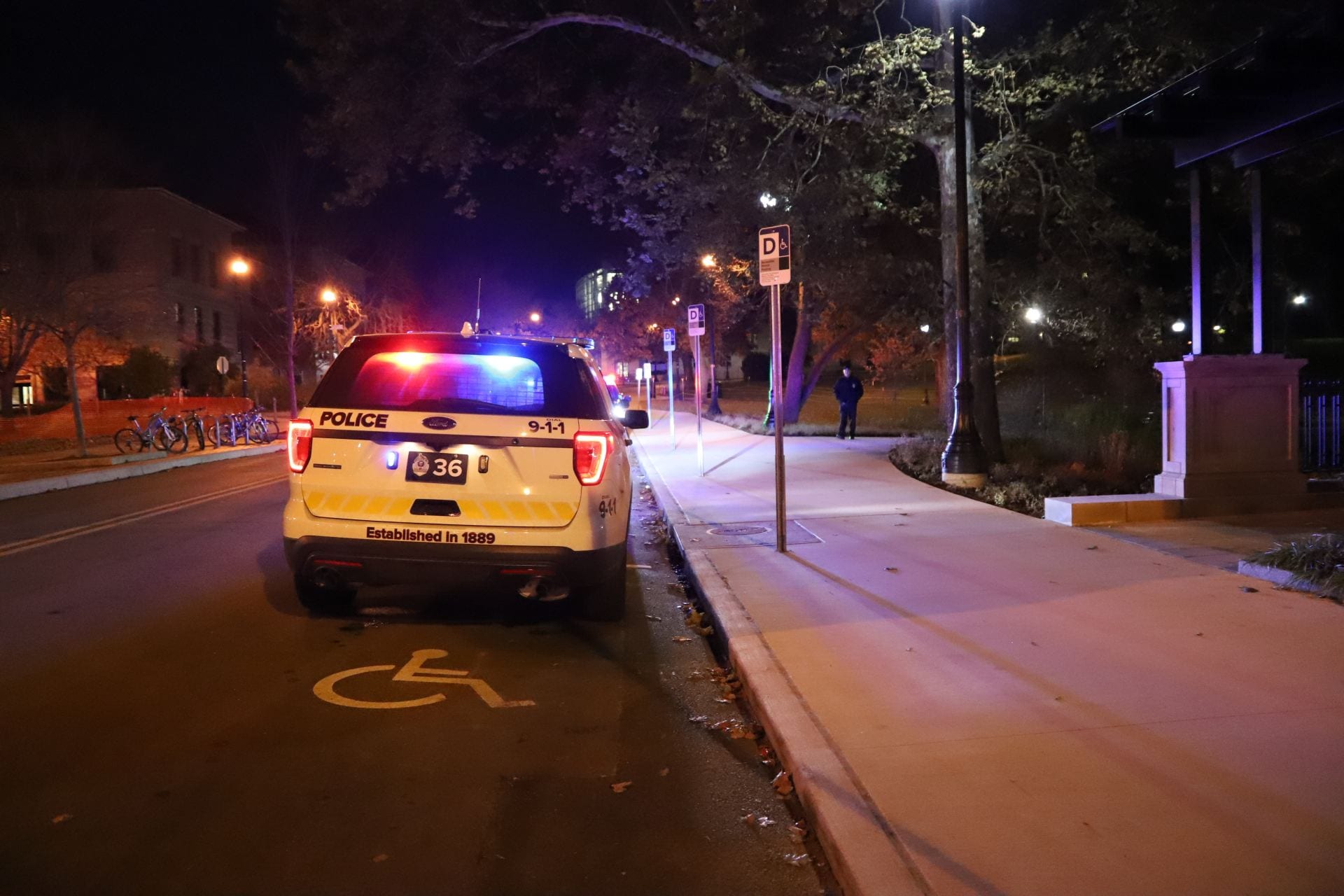|
When Vietnam War protesters marched to Washington in 1969, they carried signs and chanted grievances while sporting their beliefs on bold T-shirts. Today students display their causes on their back in a much more fashionable way.
Students define cause shirts as graphic T-shirts sold at popular stores displaying brief phrases pertaining to a number of social issues. Some examples are “V is for Vegetarian,” “Make Love, Not War” and “Increase the Peace.”
But are the shirts anything more than a fashion statement with good intentions?
A check of various online retailers such as Delias and The Gap showed that proceeds from the T-shirts do not contribute to the causes the shirts endorse.
Currently, on the Urban Outfitters Web site, a store on High Street popular with Ohio State students, are 168 graphic T-shirts. Many harbor political, social and ethical beliefs, but only three shirts are accompanied by a description that says money is given to a charity that might support the cause displayed on the shirt.
For example, an Urban Outfitters shirt with the words “Empower Darfur” was designed solely to raise awareness. According to the site the graphic on the T-shirt hopes to bring attention to the crisis in the Darfur region of Sudan. The shirt is $28 on the Web site.
A shirt that colorfully says “World Peace” is accompanied by the Web site description: “Advocate for world peace in this Threads 4 Thought tee. Look good, do good: Threads 4 Thought donates a portion of their proceeds from this tee to various charities.” The T-shirt is $38.
“I think it’s kind of exploitation – they’re marketing to a certain audience,” said Patrick Stengle, a junior in strategic communications. “But I don’t necessarily think it’s a bad thing; they’re trying to make money. If they spread awareness that’s great. I mean, everyone likes clothes.”
Because Stengle routinely recycles, he said he feels sporting his recycling shirt is reasonable.
“I would almost identify with someone wearing a cause shirt. I feel like I would like that person,” he said. “I think that’s evidence that those shirts have an effect.”
His roommates Danny Ferguson and Danny Prater said they have seen variations of protest in the form of these shirts.
Because many cause T-shirts do not specifically allotocate money to a charity that supports the cause on the shirt, Stengle’s roommates disagree with him.
“I don’t think anyone believes that buying a shirt at Urban Outfitters is going to make someone who reads it go work at a homeless shelter,” said Prater, a junior in strategic communications. He owns no cause shirts.
“I feel like if I want to get involved in something, yeah, it’s great to wear a shirt around,” said Ferguson, a sophomore in linguistics. “But if you’re not actually doing something about the issue on your shirt then you’re not really doing anything.”
Many of the shirts exhibit humanitarian issues that affect Third World countries raising the question of whether the shirts were manufactured under humane conditions.
According to an article in Philadelphia Weekly, many labels on clothing in Urban Outfitters say “MADE IN TURKEY,” “MADE IN INDIA” or “MADE IN SRI LANKA.”
In the report, Urban Outfitters president Richard Hayne defended his company.
Hayne said most Urban Outfitters’ clothing is manufactured in Third World countries, but Urban Outfitters would not do business with sweatshops, according to the article.
“Years ago I visited one of the factories we work with in India, and there was 500 people standing in a line three-people deep stretching around the building,” he was quoted as saying in Philadelphia Weekly. “I said to the foreman, ‘What’s going on?’ He told me they were all applicants for the four positions they had open. I toured that facility and it was reasonably clean – for India. And it was reasonably well-lit – again, for India. And yes, it was mostly young women working there. But it is my understanding that the only other option those women had to feed their families was selling their bodies. So I don’t want to hear people from the suburbs with their fat American stomachs telling people in other countries how to run their societies.”
The dissenting roommates came to an agreement: students will continue to wear what they like, cause or no cause.
“I have a shirt with the most important cause of all,” Prater said with a laugh, mischievously pulling off his sweatshirt to reveal an “American Idol” T-shirt. “I’m not a believer in the message tees.”
Angela Henderson can be reached at [email protected].


